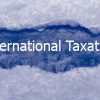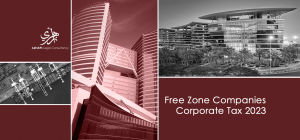The Untimely Death of “Double-Irish Dutch sandwich”?
The ruling of the EU-Commission by which Apple Inc. (“Apple”) was compelled to pay EUR 13 billion is without exaggeration a historical decision.
There have been several comments and reactions on the EU-Ruling. Some comments suggest the end of the “Irish Double” and see international tax optimization structures in peril.
The Ruling of the EU-Commission has just been announced and it needs to be examined diligently prior to jumping to any conclusions. However, so far as known publicly, the merits of the case are the following:
In the 1980ies Apple founder Steve Jobs decided to set up affiliates outside the US, namely in Ireland. At that time, the Irish government supported such industrial locations by granting generous tax reliefs. Till date, Apple uses several affiliates based in Ireland in order to conduct its international business. Theoretically, the profits of these affiliates were subject to the normal corporate tax in Ireland of 12.5 %.
The normal corporate tax rate in Ireland is 12.5 %. Apple Inc. set up a holding in Ireland and negotiated with Ireland a specific tax-arrangement, i.e. the so-called “Double-Irish Dutch sandwich”, by which Apple could almost avoid any taxation of royalties paid from Apple’s European affiliates to the Irish Companies.
The Structure of a “Double-Irish Dutch sandwich”
The recipe of a “Double Irish Dutch sandwich” is rather easy. You use two Irish Companies and in the middle you have a Dutch Company.
The underlying tax principle of a “Double Irish” are provisions in the Irish tax laws according to which a corporation is only subject to [corporate] tax, if it is registered in Ireland and it has its place of business (i.e. the place where the management is located) in Ireland.
In light of this tax framework, one company (offshore) will be registered in a tax haven (e.g. Bermuda, UAE or Cayman Islands) that will have its place of business in Ireland, without being subject to tax in Ireland (the First Company). The Second Company will be registered in Ireland and will also have its place of business in Ireland.
The Second Company receives loyalties from its affiliates’ operation in [European high] tax jurisdictions. However, if the Second Company would directly pay the royalties to the First Company (registered in a tax heaven outside the EU), Ireland would levy a so called withholding tax. In order to avoid such withholding tax, the Second Company first transfers the profits to a Dutch subsidiary, as there exists a Double Taxation Agreement between Ireland and the Netherlands which exempts royalties from withholding taxes. By sending the money first to the Netherlands and then to the First Company registered in a tax haven, no taxes will be levied. This particular structure is called “Double-Irish Dutch sandwich).
The Ruling of the EU-Commission
The decision of the EU-Commission is not challenging the corporate tax rates in Ireland which are significantly lower than in most other European countries. Instead, the EU-Commission considers agreement between Apple and Ireland, by which Ireland reduced its tax rates for a particular tax payer, i.e. Apple, an illegal subsidy.
In this context it is important to know that in the European Union subsidies are – generally speaking – prohibited in order to safeguard a fair and competitive business environment. The Ruling of the European Union considers the tax agreement between Ireland and Apple an illegal subsidy violating the principles of fair competition as the “normal” business man has to pay corporate taxes of 12.5 % of his reported profits.
In light of the above, the Apple Ruling does not jeopardize as such international optimized tax structures. However, the Ruling proves that the European Union is able to react to any unfair competition caused by an abuse of tax agreements between its member states and some [privileged] tax payers.
Untimely Death of “Double-Irish”
Coming back to the question raised above, one needs to mention that “Double-Irish” was for many years an eyesore for most European countries and as such they put significant pressure on Ireland in order to change its tax regime. As a consequence, the Irish government suspended this structure since 2015. However, the Irish government granted all existing “Double – Irish” tax structures a transition period till 2020.
Apple and the Republic of Ireland announced to appeal the decision of the European Commission, and the final outcome yet remains to be seen. However, as the “Double-Irish” is, since 2015, no longer an available tax structure, the decision will only have an impact on the still existing “Double-Irish” structures.
As such, the decision will have only very little impact on new tax optimization structures as long as these structures cannot be considered as (illegal) state subsidies.









